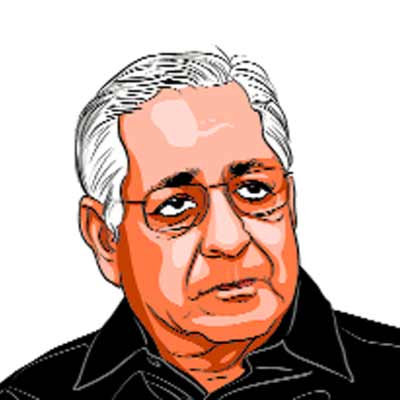Opinion Resurgent fascism in Maharashtra
Measures designed to protect and promote the rights and interests of the local inhabitants of the State are unobjectionable....
Measures designed to protect and promote the rights and interests of the local inhabitants of the State are unobjectionable. The criterion should be the economic condition of the persons sought to be benefitted and not the language spoken in the State. Besides the means for achieving these ends should be lawful and legitimate. The ultimatum issued by MNS supremo Raj Thackeray to taxi drivers to speak and write in Marathi coupled with the threat of they not being allowed carry on their lawful occupation if they do not comply,is tantamount to criminal intimidation. It smacks of fascism. It is patently unconstitutional because it unreasonably restricts the fundamental rights of taxi drivers to carry on their occupation. This fascist trend,if not uprooted,can extend to other areas and will lead to divisiveness which is anathema to the culture and spirit of a cosmopolitan city like Mumbai.
Inaction of the Maharashtra government,verging on acquiescence,is distressing. If unconstitutional activities by extra-constitutional authorities are not curbed stringently,the authority of the State will be undermined and Rule of Law will be subverted. Electoral considerations should not prevent the State government from acting swiftly before it is too late.
Judicial dissents
It may surprise readers that some court judgments are included in the Oxford Book of English prose and legal/literary anthologies because of their style,literary elegance and also fervor which is evident in dissenting judgments. Lord Atkin disagreed with the majority view of the House of Lords which gave the Secretary of State uncontrolled power of detention of a person on his subjective satisfaction. Atkin thundered in his dissent that,in England amidst the clash of arms the laws are not silent. Lord Atkin was scathing in his criticism of the attitude of his brother judges in the majority who,on a mere question of construction,when face to face with claims involving the liberty of the subject,show themselves more executive-minded than the executive. Such strong language is exceptional and un-English because dissenting judges in England are generally polite as is evident from the dissent of Lord Justice BowenI have the misfortune to differ from my Lord Justice Cotton,and I do so with a deep sense of the probability that he is right. American dissents tend to be sharp. Wanamaker,J referring to the associate justices contrary opinion said there is contained in this language the most beautiful bouquet of Bourbon blunders,expressed and implied,that has ever been handed to the bench and bar of Ohio.
Our Supreme Court judges are generally courteous in their dissents. Justice Venkatachaliah almost apologised for his dissent in the famous Antulay case. I have bestowed a respectful and anxious consideration to the weighty opinion of my brothers but have to deny myself the honour of agreeing with them in the view they take. Justice Vermas dissent in the Veeraswami case is mildly sarcastic without being rude. I would rather be a conscientious lone dissenter than a troubled conformist. Justice Ruma Pal was characteristically forthright in her dissent where she criticised the majority view as subjecting the minority educational institutions in question to an intolerable encroachment on the right under Article 30(1) and let in by the back door as it were,what should be denied entry altogether.
It is noteworthy how with the march of time,one generations dissents have often become the rule of law years later and minority judgments have become the majority judgment of the court. This is indicative of the courts frank acknowledgement of its fallibility.
However a caveat must be entered. A previous judgment should not be overturned because its reasoning does not appeal to a judge. We must heed Justice Krishna Iyers warning that pronouncements by Constitution Benches should not be treated so cavalierly as to be revised frequently. Otherwise they would become like a restricted railroad ticket,good for this day and train only. What is essential is that change in the composition of the court ought not to be accompanied by changes in its judgments.




